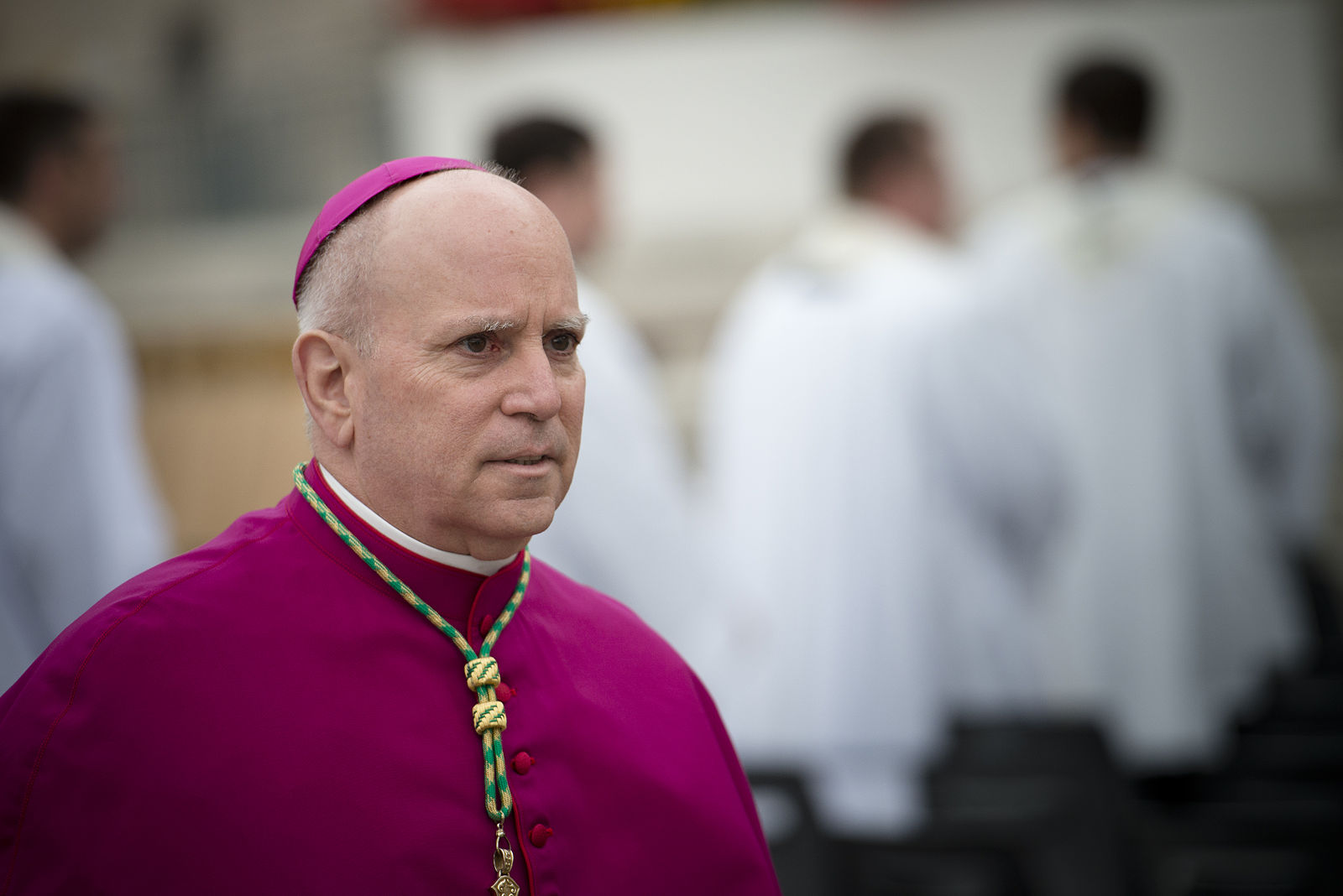Denver Archbishop Samuel J. Aquila is speaking out against German bishops who are trying to reform the church and make it more inclusive of women.
In an open letter to fellow bishops published last week, Aquila pushed back against proposals from German Catholic bishops to reconsider the role – or lack thereof – of women in the church and distribute power within the church more broadly.
Beginning in 2019 and sparked by the issue of widespread sexual abuse within the church, German bishops began holding a series of conferences to forge a path forward from the abuse crisis, restore public trust in the church, and debate the church’s practices and teachings relating to gender and sexuality.
A series of proposals for reform have sprung out of this “Synodal Path” so far, including, notably, a call for a reevaluation of the hierarchical structure that relegates women to a subordinate status in the church. Specifically, some German bishops are calling for women to be ordained.
In his letter, Aquila called their proposals “radical” and rejected their calls for reform.
In particular, the German Catholic Church has been debating the origins of ordained ministry in order to reexamine the reasoning for excluding women from the priesthood. Aquila in his letter pushed back against this reexamination, saying that the German bishop’s writings on the Sacraments of Holy Orders (the church’s teachings on ordination) wrongfully “insinuates that they were tainted if not delegitimized from the beginning … by a creeping misogyny.”
Aquila also seems to reject the idea that the Catholic Church should adapt to the modern era: “the Synodal Assembly hopes to bring about a Church that, far from being prepared to suffer the world’s contempt for her fidelity to Christ, will be preeminently conditioned by the world and comfortably accepted by it as one respectable institution among others,” Aquila writes.
“Do we have the courage to walk in the way of the Cross, bearing the world’s contempt for the message of the Gospel?” he later poses as a question to fellow bishops. “Will we ourselves heed the Lord Jesus’s call to repentance, and have the courage to echo it to an unbelieving world?”
Aquila’s ultra-conservative positions put him at odds not only with his German colleagues, but with the Church’s ultimate authority: Pope Francis. The global push for equal rights for women within the church has ramped up as the church grapples with its sordid history of abuse and a decline in membership. Earlier this year, Francis granted women more duties during Mass, allowing them to serve as lectors, to read Scripture, and serve on the altar as eucharistic ministers. At the same time, he reaffirmed that women are not allowed to serve in the priesthood or diaconate.
The German Synodal Path is therefore a huge win for Catholic women who don’t want to be regarded as second-class citizens in their church.
In addition to the question of women in the priesthood, the German bishops questioned the requirement that priests be celibate and proposed making the elections of bishops and pastors more democratic.
“The Synodal Assembly in fact proposes truly radical revisions of the structure of the Church and of her understanding of her mission,” Aquila writes, adding that their proposals “depend upon a partial and tendentious account of the origin and nature of the ordained ministry, one that is at odds with the Church’s definitive understanding of Christ’s own institution of the Church.”
Aquila continues, “The result is a vision for the Church that risks abandonment of the only One who has ‘the words of eternal life’ (John 6:68).”
Aquila is often outspoken on political issues related to gender and sexuality, particularly abortion and LGBTQ rights.
He once suggested, for example, that homosexuality within the priesthood was partly to blame for the sexual abuse crisis. And, earlier this year, he compared homosexuality to bestiality at a health care conference sponsored in part by regional Catholic hospitals.
Aquila is a fierce anti-abortion advocate in Colorado and can often be found on the front lines of the fight against abortion rights. He is one of several Catholic bishops in the U.S. who are attempting to block President Joe Biden and other politicians who support abortion rights from receiving the Eucharist.




